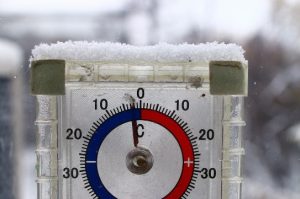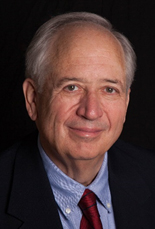Climate Change News
Cold Snap vs Global Warming
Climate Scientist Dr. Peter Ward Explains Bitter Cold Weather within a Warming Climate
 Weather vs Climate. Weather vs Climate.
2018 has already set records with frigid temperatures and endless snowfall. Even sunny southern states like Florida and Texas are feeling the brutal chill. We know the climate is warming but recent blizzards and arctic air contradict common sense prompting many people to ask what’s the difference between weather and climate change!? Well, the difference is H-U-G-E Charlotte Interview climate scientist Peter Ward to understand exactly what is happening with the weather in Charlotte compared to the warming worldwide.
Current record-breaking temperatures are causing many people, including President Trump to discredit global warming…which couldn’t be more wrong! Here’s why: Weather and climate are two very different things. |
How Ozone Depletion Links Weather & Climate Change:
Weather is what happens today. Climate is what happens, on average, over years, decades, and even longer. Both are closely linked to the amount of ozone in the atmosphere, something that is always changing.
In the winter, ozone accumulates over the Arctic leading to very cold, dense, dry air surrounded by the polar vortex, circulating from west to east. The polar vortex is surrounded by the jet stream that governs our weather. When arctic ozone is depleted, especially in December-January, the polar vortex weakens and the jet stream buckles, causing cold air to sweep down from Canada, typically into the mid-west, but this time more into New York and New England. The bends in the jet stream also become more closely spaced, causing more sudden changes from cold to warm to cold.
The ozone layer has been more depleted than usual in early winter because of the eruption of Bárðarbunga volcano in Iceland in 2014, the largest basaltic eruption of its type since 1783. Throughout Earth history, very large basaltic lava flows have led to ozone depletion and global warming on average, but daily weather changes including buckling of the jet stream, causing blasts of cold air to reach lower latitudes.
“Since the first studies of ozone in the 1920s, climate scientists noticed a close link between ozone and weather. Now they are noticing a link between ozone and climate,” says Peter L Ward, a long-time government geophysicist, who has spent eleven years carefully reexamining the physics of global warming.
- Weather in Charlotte VS climate worldwide
- The difference between weather and climate
- Polar Vortex explained
- How Ozone Depletion Links Weather & Climate Change
 Dr. Ward worked 27 years with the United States Geological Survey as research geophysicist, branch chief, and program manager. He helped develop and manage a major national research program, chaired a committee at the White House, testified before Congress, worked on a committee for Vice President Gore, published more than 50 scientific papers, and won two national awards for explaining science to the general public. He retired in 1998, working intensely for the past decade trying to resolve several enigmatic observations related to climate change.
Dr. Ward worked 27 years with the United States Geological Survey as research geophysicist, branch chief, and program manager. He helped develop and manage a major national research program, chaired a committee at the White House, testified before Congress, worked on a committee for Vice President Gore, published more than 50 scientific papers, and won two national awards for explaining science to the general public. He retired in 1998, working intensely for the past decade trying to resolve several enigmatic observations related to climate change.
Ward’s analysis and theory are explained in detail on his website and in his new book,
“What Really Causes Global Warming? Greenhouse Gases or Ozone Depletion?”
MEDIA INQUIRIES CONTACT:
Erin Klein
erin.climatepr@gmail.com
(866-718-3865)